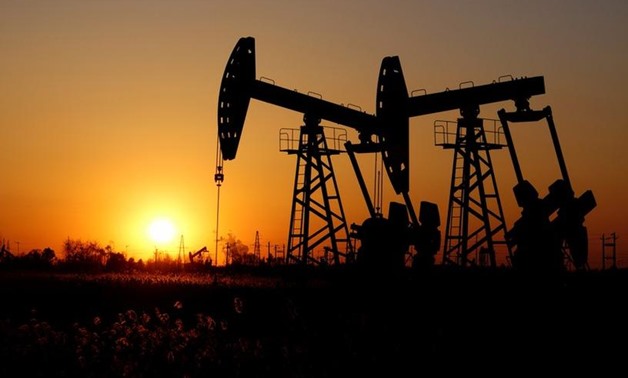Oil prices mixed as hope lingers for flagging U.S.-China talks

[ad_1]
Brent crude futures were at $70.40 a barrel at 0755 GMT, up 38 cents or 0.24 percent. Brent ended the previous session down 0.6 percent.
U.S. West Texas Intermediate (WTI) crude futures were at $60.92 per barrel, down 12 cents or 0.2 percent. WTI closed down 1 percent on Monday.
The negotiations between the United States and China appeared headed towards success last week but have largely unraveled over U.S. accusations that Beijing sought vast, last-minute changes.
China on Monday ignored a warning from U.S. President Donald Trump and moved to impose higher tariffs on a range of U.S. goods including frozen vegetables and liquefied natural gas.
But the Chinese government’s top diplomat, State Councillor Wang Yi, indicated on Monday that Beijing hoped for a compromise: “Both countries’ negotiating teams have the ability and wisdom to resolve each other’s reasonable demands.”
Trump on Monday said he expected to speak to Chinese President Xi Jinping at a G20 summit in late June and have “probably a very fruitful meeting”.
“Market participants (are) increasingly having to do their own guesswork and read between the lines to ride the latest wave of volatility in the financial markets,” analyst Vandana Hari of Vanda Insights said.
“The U.S. president’s comments likely tilted the balance in favor of the optimists, who continue to expect a rapprochement despite last week’s major setback in trade negotiations.”
Oil rose more than $1 a barrel on Monday but then fell with Wall Street as the negative turn in the U.S.-China talks spooked investors.
In the Middle East, Saudi Arabia said two of its oil tankers were among those attacked off the coast of the United Arab Emirates on Sunday, describing it as an attempt to undermine the global oil supply.
A U.S. official said Iran was the likely culprit.
Tehran has been embroiled in an escalating war of words with the United States over stricter U.S. sanctions, which have cut its oil exports and tightened global supply. Iranian officials denied responsibility for the incident.
A fifth of global oil consumption passes through the Strait of Hormuz from Middle East crude producers to global markets.
Source link






